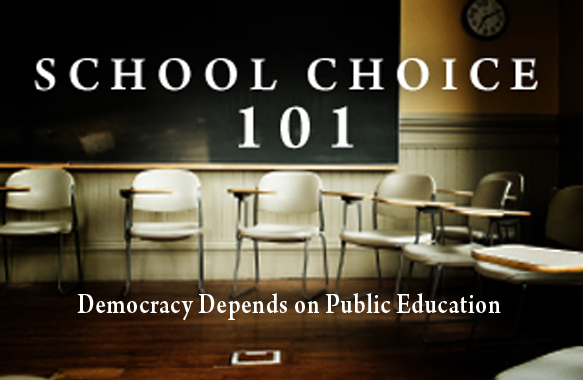A Brief Meditation on Choice
By Paul L. Thomas, Ed.D. | Originally Published at The Becoming Radical. February 27, 2014
Deborah Meier reminds us that “one can’t ’choose’ to be the children of the wealthy,” adding later:
You and I—or some other somebodies—are deciding the future of “other people’s children”[hyperlink added] unless we provide ways for “them” to have a voice, a vote, and the resources to decide their own future. We need to restore a better balance between local communal life (with its power to effect some immediate changes like we did at the small self-governing schools I love) and distant, “objective” moneyed power. It’s our democracy that rests on our rebuilding strength at the bottom. If we don’t, we induce a passivity that surely cannot be in the self-interest of the least powerful, but might (just might) be in the self-interest of others. And then we blame them for being passive?
Without consciously deciding to do so, I have just finished reading the novels of Jeffrey Eugenides in reverse chronological order, ending just yesterday with The Virgin Suicides.
In his first novel, the story of five sisters who all commit suicide, the reader is pulled into a collective recollection that feel invasive and obsessive. We are left with many questions about these lost lives. But central to the narrative is the role of the girls’ parents.
One moment in the novel involves the mother forcing one daughter to destroy in a fire and then throw away the girl’s treasured record albums.
This and other scenes in The Virgin Suicides reminded me of the many situations like the one above that my
empathyeducates – Are Schools Asking to Drug Kids for Better Test Scores?
empathyeducates – Are Schools Asking to Drug Kids for Better Test Scores?: Are Schools Asking to Drug Kids for Better Test Scores?Photograph; Drugs don’t ‘cure’ a disease called ADHD, the way that antibiotics cure pneumonia. Getty ImagesBy Alison Gopnik | Originally Published at Wall Street Journal. February 21, 2014In the past two decades, the number of children diagnosed with Attention Deficit H

